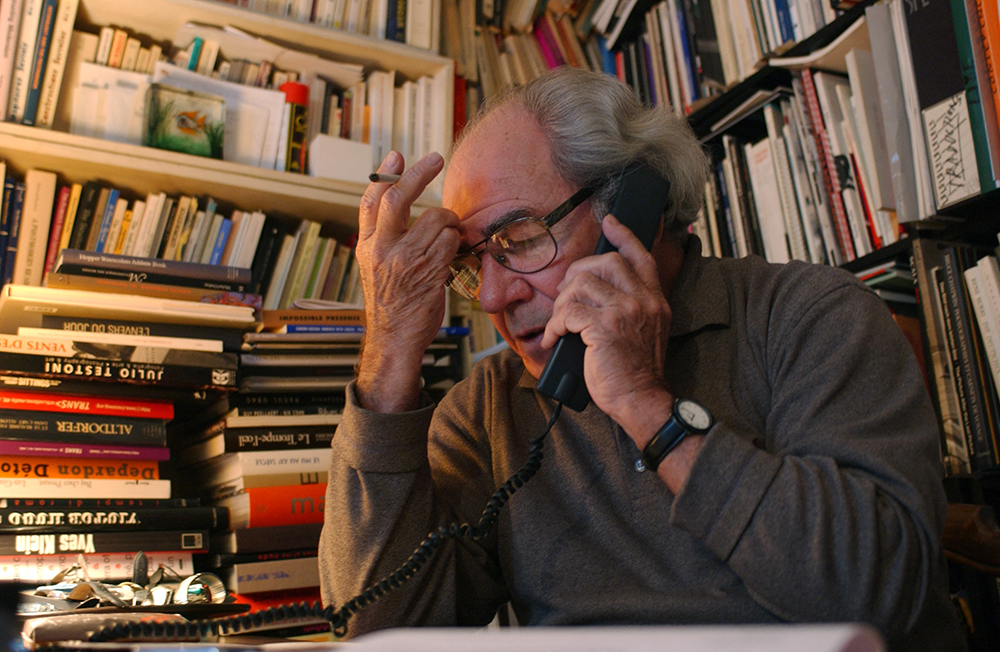In those awful first weeks after 7 October, someone came up with a slogan that was taken as a rallying cry for those of us on the right side of the argument. As editor of the Jewish Chronicle at the time, I bought a job lot of stickers emblazoned with the slogan and handed them out to staff. It was this: ‘F**k Hamas’.
On Saturday, when the jihadi group released Ohad Ben-Ami, 56, Or Levy, 34, and Eli Sharabi, 52, in an appallingly emaciated state, that slogan was an adequate description for how the nation of Israel felt. When waif-like Sharabi was paraded on the propaganda stage, he was ‘interviewed’ by his captors and asked what aspect of freedom he was most looking forward to. Naturally, he replied that he was eager to be reunited with his wife, Lianne – who grew up near Bristol – and two teenage daughters. This was greeted with deep mirth by his tormentors, who unlike their victim knew that their comrades had killed his family long ago.
Hamas finds itself barreling towards an ultimatum
F**k Hamas. There is no getting away from that thought. After their release, the three men spoke of being hung upside down, branded with a scalding iron, starved and suffocated close to the point of death. They had to learn how to walk again in advance of their liberation. The reaction of the world was one of shock; so much so that the jihadis, who have based their entire war strategy upon creating propaganda to pressurise the enemy, decided to suspend the release of more hostages for fear of attracting negative publicity.
They hadn’t counted on Donald Trump, who had also seen the disturbing footage and decided that the time had come to stop the messing about. Yesterday, Israeli Prime Minister Benjamin Netanyahu reiterated this message. So Hamas finds itself barreling towards an ultimatum: the hostages must be released by high noon on Saturday or else there will be ‘hell to pay’.
About 70 per cent of Israelis support Trump’s plan to relocate Gazans out of the benighted strip. Wouldn’t you? After all, if you’re wondering what a Palestinian state would look like, Gaza – which was handed back to them in 2005, with Israel even evacuating Jewish bodies from the cemeteries – gives you a fair idea. After 7 October, would you be willing to gamble your children’s futures on the chance that this time the same approach, which has failed spectacularly for decades, at the cost of so much loss of life, would produce a different result?
At the same time, however, about the same number of Israelis support moving to the second phase of the deal, which would see 24 male hostages and 35 Israeli corpses handed over in return for a complete withdrawal from the Strip and a permanent end to the war. 21 per cent oppose it, including Bezalel Smotrich, Israel’s far-right finance minister, who has threatened to collapse the coalition if it goes ahead. This is one of the several debates that is tearing the Israeli soul apart.
In 1993, Yizchak Rabin, the peacemaking Israeli leader, famously said: ‘Enough of blood and tears. Enough.’ That slogan represents the dominant feeling of that majority of Israelis who support the deal. Of course, they have a good deal of ‘f**k Hamas’ coursing through their veins too, but the sight of those three poor men was enough to make their hearts break – not only for them but for the ones who continue to languish in such deplorable conditions in Gaza.
On the other side of the argument, ‘f**k Hamas’ wins out; but it is mixed with large quantities of ‘enough of blood and tears’. The principal anxiety for those who resist the second phase, which would herald an end to the war, is that Hamas would end up not being sufficiently destroyed. Although the group is depleted by about 80 per cent, their blood-soaked grip has not yet been fully pried from the levers of control in Gaza and they have been recruiting and arming teenagers in order to bolster their ability to crush dissent.
From an Israeli point of view, after 16 harrowing months, the end of the war would bring significant national relief; but what meaning will this hold if Hamas is able to rebuild and mount a repeat of 7 October? As Benny Gantz, then the opposition leader, remarked back in March, you can’t extinguish 80 per cent of a fire.
This is Israel’s Sophie’s choice. To a greater or lesser extent, it has been tormenting the country ever since that fateful day in October. To be a Jew in 2025 is to be permanently burdened by such agonies as these, in the knowledge that the lives of your children may depend on the decision. Ultimately, the only baffling aspect of all of this is how few people around the world have taken up the ‘f**k Hamas’ slogan. It is a sentiment that every decent person should get behind, especially the Palestinians.








Comments